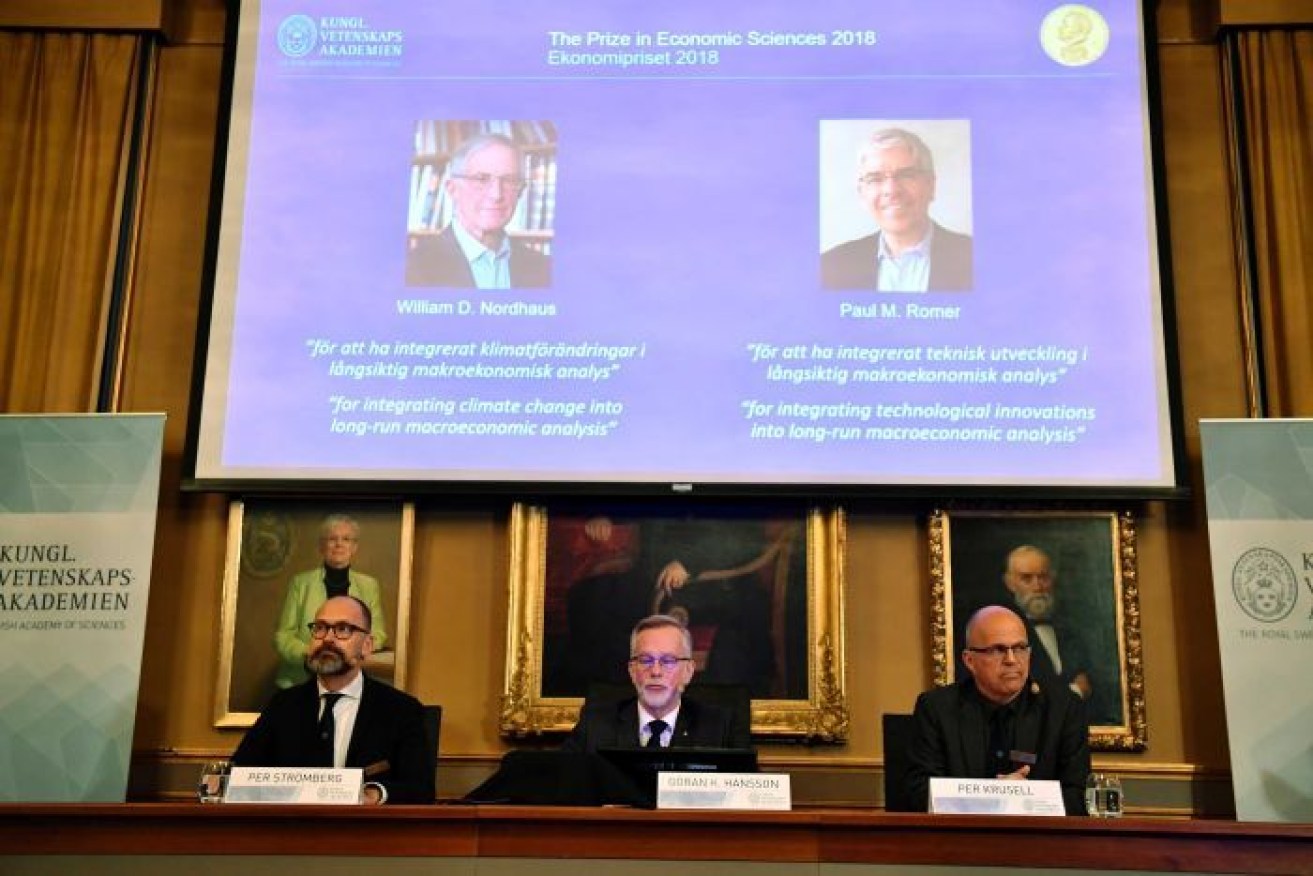Climate change economics model wins Nobel prize

The Nobel committee announce the laureates of the Nobel Prize in Economics during a press conference at The Royal Swedish Academy of Sciences in Stockholm. Photo: Getty
Americans William Nordhaus and Paul Romer have won the 2018 Nobel Economics Prize for work in integrating climate change and technological innovation into economic analysis, the Royal Swedish Academy of Sciences said.
Proceedings have been overshadowed by the absence of the literature prize, postponed to give the Swedish Academy time to restore public trust after a sexual assault scandal.
Mr Nordhaus, of Yale University, was the first person to create a quantitative model that described the interplay between the economy and the climate, the academy said.
Mr Romer, of New York University’s Stern School of Business, has shown how economic forces govern the willingness of firms to produce new ideas and innovations, laying the foundations for a new model for development, known as endogenous growth theory.
“Their findings have significantly broadened the scope of economic analysis by constructing models that explain how the market economy interacts with nature and knowledge,” the academy said in statement.
Worth nine million Swedish crowns ($1.4 million), the economics prize was established in 1968. It was not part of the original group of five awards set out in Swedish industrialist Alfred Nobel’s 1895 will.
“This year’s Laureates do not deliver conclusive answers, but their findings have brought us considerably closer to answering the question of how we can achieve sustained and sustainable global economic growth,” the academy said.
Mr Romer said he ignored two telephone calls, thinking they were spam calls, before the Swedish Royal Academy of Sciences was able to get through to him.
He teaches economics at New York University, where he founded the Stern Urbanisation Project, which researches how policymakers can harness the rapid growth of cities to create economic opportunity and undertake systemic social reform.
Mr Romer also works with civic innovators as director of NYU’s Marron Institute of Urban Management.
The university says he founded Aplia, an education technology application where students have submitted more than 1 billion answers to homework problems.
A faculty member at Yale University since 1967, Mr Nordhaus’s research has focused on economic growth and natural resources, and the economics of climate change.
His economic approaches to global warming include modelling to determine the efficient path for coping with climate change.
He’s also studied wage and price behaviour, health economics, augmented national accounting, the political business cycle, productivity, and the “new economy.”
His current work on what he calls his “G-Econ project” promises to provide the first comprehensive measures of economic activity at a geophysical scale.
The Nobel prizes for physiology or medicine, physics, chemistry and peace were awarded last week.
Three women have been awarded Nobel prizes, an unusually large number for a single year.
-ABC






